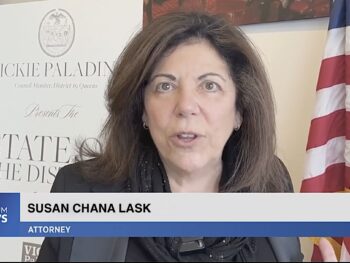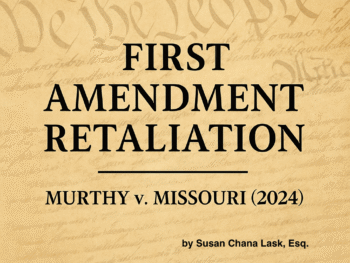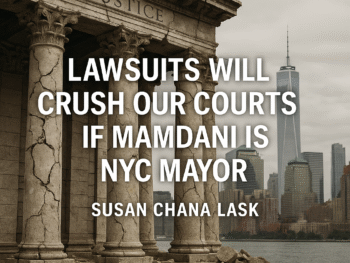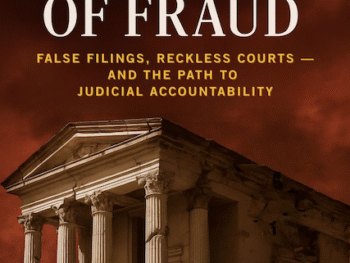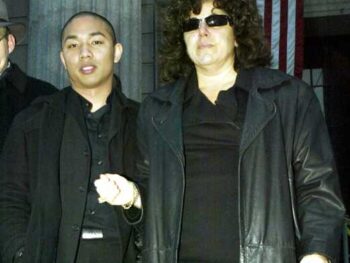
2nd. Cir. Should Ignore 11th’s Gay Bias Ruling, Ad Exec Says
March 20, 2017
Summary
A gay advertising executive seeking to revive his bias suit against DDB Worldwide Communications Group Inc. told the appellate court Saturday to ignore the company’s citation to a recent Eleventh Circuit ruling that Title VII doesn’t protect against sexual orientation discrimination, saying it has little relation to his case.
Body
A gay advertising executive seeking to revive his bias suit against DDB Worldwide Communications Group Inc. told the appellate court Saturday to ignore the company’s citation to a recent Eleventh Circuit ruling that Title VII doesn’t protect against sexual orientation discrimination, saying it has little relation to his case.
Matthew Christiansen, an HIV-positive ad executive who claims he was harassed and intimidated by his supervisor at DDB Worldwide, a subsidiary of Omnicom Group Inc., has argued in his appeal that the general prohibition in Title VII of the Civil Rights Act against sex discrimination should cover bias that is based on sexual orientation, and that the Second Circuit’s precedent to the contrary in a 2000 decision known as Simonton v. Runyon should be overturned.
Last week, Omnicom wrote to inform the Second Circuit of a March 19 ruling by a split Eleventh Circuit panel that discrimination based on homosexuality is not prohibited by Title VII. That ruling, which may be reviewed en banc, mostly upheld the dismissal of a suit by Jameka Evans, a former Georgia Regional Hospital security guard who claimed she was harassed because she was a lesbian and didn’t conform to gender norms.
But in a response letter Saturday, Christiansen said both Omnicom’s letter and the Eleventh Circuit’s lead opinion didn’t consider two key U.S. Supreme Court cases: a 1989 ruling in Price Waterhouse v. Hopkins that expanded Title VII’s protections against sex discrimination to include discrimination based on gender stereotypes and a 1998 decision in Oncale v. Sundowner Offshore Services Inc. that Title VII could be extended to cover same-sex harassment.
“Conspicuously omitted from Omnicom’s letter is any analysis of how Evans denied sexual orientation to Title VII,” Christiansen’s letter said. “That is because Evans failed to make that analysis and instead relied on a case pre-dating Price Waterhouse and Oncale.”
Instead, Christiansen said the Eleventh Circuit’s ruling relied on its own precedent in a 1979 case known as Blum v. Gulf Oil Corp., which the ad executive argued isn’t precedential in the Second Circuit and is unrelated to his appeal that specifically focuses on overturning Simonton.
Christiansen argued that the Eleventh Circuit’s lead opinion offered only a cursory analysis of the Title VII issues at play, while a more robust analysis was offered in dissent by Eleventh Circuit Judge Robin S. Rosenbaum.
“Judge Rosenbaum calls this Title VII discrimination ‘prescriptive stereotyping,’ which is the failure of a sex, male or female, to comport to stereotypes of being attracted to the opposite sex that the employer expects that sex to be attracted to,” Christiansen’s letter said. “Simply put, Judge Rosenbaum’s dissent with Evans comports with Christiansen’s argument before this Circuit that this is all about ‘sex’ and Title VII prohibits discrimination ‘because of … sex.’”
The argument presented by Christiansen resembles one given last week in a similar case before the Seventh Circuit by Illinois college professor Kimberly Hively, who is alleging anti-gay bias against her employer, Ivy Tech Community College in South Bend, Indiana.
Ivy Tech had notified the appellate court of the Evans ruling shortly after it was issued, categorizing it as saying that Title VII does not cover sexual orientation claims but does cover gender nonconformity claims.
But Hively promptly responded with a letter of her own to the Seventh Circuit taking issue with that depiction, saying in part that it didn’t properly consider the Price Waterhouse and Oncale cases.
“What Evans held to be ‘foreclose[d]’ … was not Title VII’s applicability to ‘sexual orientation claims’ (as Ivy Tech’s letter states) but instead its applicability to claims of ‘discrimination because of sexual orientation,’” Hively added. “This distinction was important to [Eleventh Circuit] Judge [William] Pryor, who posited [in a concurring opinion] that discrimination based solely on the target’s ‘homosexuality’ or gay ‘status’ is not actionable, while discrimination based on any gender-nonconforming ‘behavior’ is actionable.”
Christiansen is trying to revive a suit alleging that his supervisor at DDB harassed and discriminated against him by circulating lewd pictures around the office and on Facebook depicting Christiansen performing vulgar acts and started false rumors that Christiansen had AIDS. The Equal Employment Opportunity Commission has sided with Christiansen in the case.
The case was dismissed by U.S. District Judge Katherine Polk Failla last year in part because Simonton held that Title VII excludes claims of sexual orientation discrimination.
Counsel for Omnicom was not immediately available for comment Monday.
Christiansen is represented by Susan Chana Lask of the Law Offices of Susan Chana Lask.
Omnicom is represented by Howard J. Rubin, Shira Franco and Judith Kong of Davis & Gilbert LLP. Christiansen’s supervisor is represented by Rick Ostrove of Leeds Brown Law PC.
The case is Christiansen v. Omnicom Group Inc. et al., case number 16-748, in the U.S. Court of Appeals for the Second Circuit.
The Eleventh Circuit case is Evans v. Georgia Regional Hospital et al., case number 15-15234, in the U.S. Court of Appeals for the Eleventh Circuit.
–Editing by Sara Ziegler.

